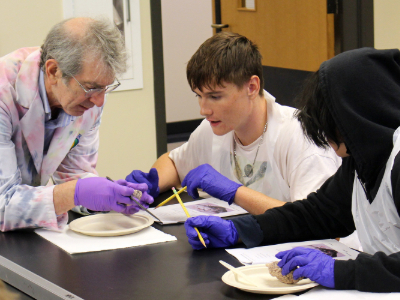How to Be an Ally of the Neurodiversity Movement

Recognize and understand what Neurodivergent means
A neurodivergent person is someone whose brain, body and nervous system operate differently from neurotypical people. Neurodivergent traits are frequently misunderstood and misinterpreted by neurotypical people and often viewed as aggressive or toxic interpersonal behaviors. Here are a few examples:
- People with autism can be seen as rude or angry or aggressive in their communication due to difficulties in picking up on non-verbal social cues or nuanced communication from neurotypical people.
- People with ADHD are often viewed by neurotypical people as lazy, flighty or irresponsible because they struggle with forgetfulness or go into periods of hyperfocus.
- People with dyspraxia can be seen as careless, clumsy, and destructive due to a number of possible impacts, including impaired fine motor skills, balance, and ability to judge proximity.
- People with auditory processing differences are not hearing impaired but may have difficulty distinguishing the meaning of spoken words without extra time to process or without supplemental input such as captions.
Neurotypical people can start the path to allyship by understanding that these, and other examples of differences in cognitive function, are not signs of low intelligence or intentional behaviors.
Recognize that Neurodivergent individuals choose to identify themselves in different ways
The person-first movement, an example of which might be “a person with Autism”, gained traction in recent years among disability rights movements but particularly in the neurodivergent community, that has never been uniformly adopted and identity-first language is still widely used. Among the neurodivergent communities, autistics in particular view Autism as a part of their identity. This is also true of many individuals who received diagnoses of “Asperger’s Syndrome”. The medical profession has dropped Asperger’s in favor of the Autism Spectrum, but many Aspies still see that as their diagnosis and part of their identity. Note that the Deaf community in particular also prefer identity-first language.
Functioning labels, such as “high-functioning” and “low-functioning” are discriminatory and harmful
Particularly in terms of Autism, individuals usually labeled “high-functioning” often need no, or less support and so are often overlooked. Those labeled “low-functioning” may be seen as incapable of things they can do independently. While these terms are usually applied to autistic people, the implication exists for other neurodivergent people; ADHD is a good example, as some people with ADHD function well without intervention or supports, while others may not. Like everyone, neurodivergent people have a variety of strengths and challenges; needs can vary by day, by environment, by activity. Rather than labeling neurodivergent people by “functioning”, focus on the type of support they need.
Communicate clearly, open communication without pressure and listen
- Many neurodivergent people have a hard time “reading between the lines”. For the neurotypical, communication is full of unspoken understandings. Using clear, plain language and take the time to check for understanding.
- It’s hard for neurodivergent people to initiate conversation, even if they have a topic they need or want to address with you. They just may not be ready. If an ND person is quiet, don’t assume they have nothing to say.
- Give time, opportunity and space, particularly in meetings; listen to the words of the ND person, not their tone or body language. Relaxed or social settings don’t necessarily make communicating easier for neurodivergent; it can sometimes make it harder.
Give misunderstanding time to work itself out
Most often, a communication challenge can be clarified and worked through with discussion. Reframing a situation can be a particularly helpful process. But recognize that communication can require significant energy for neurodivergent people, and they may need a longer timeline – days, or even weeks for complex issues, to work through. This is a particularly important time to avoid negative assumptions; it’s also a time and process when they’re more likely to creep in.
Finally, take responsibility for your own learning
Check out additional resources: